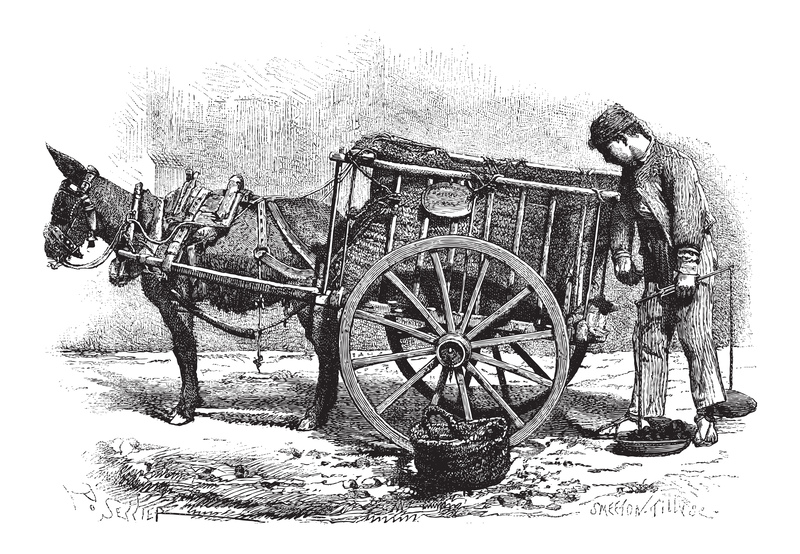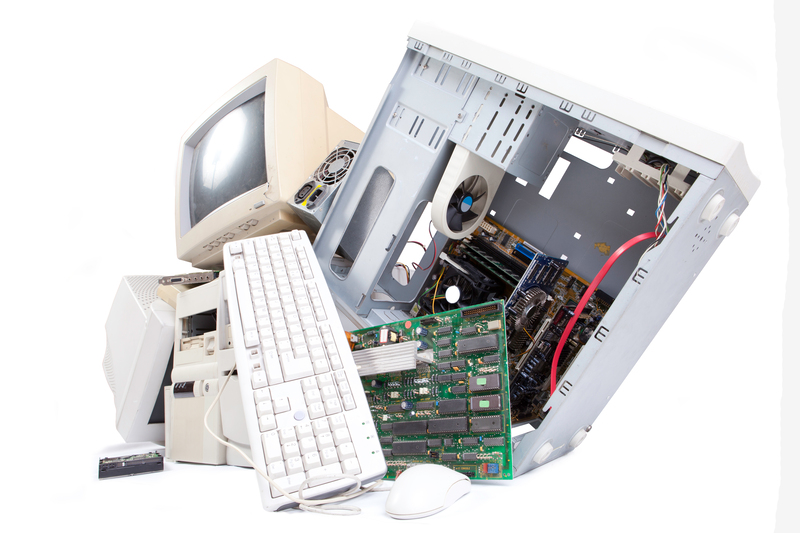How to Cut Costs on Bulky Waste Items Disposal
Are you facing a garage or attic full of oversized, unwanted household items? Paying for their removal and disposal can be surprisingly expensive. Whether you're moving, renovating, or simply decluttering, learning how to cut costs on bulky waste items disposal can save you hundreds of dollars and reduce your environmental impact.
Understanding Bulky Waste: What Qualifies as Bulky Items?
Before exploring money-saving strategies, it's crucial to define bulky waste. Municipalities often classify bulky waste as items that are too large or heavy to fit in your regular trash bin or dumpster. Common examples of bulky waste include:
- Furniture (sofas, chairs, mattresses, dressers)
- Large appliances (fridges, ovens, washing machines)
- Carpets, rugs, and floor coverings
- Garden waste and fencing
- Exercise equipment
- Broken bicycles and children's outdoor toys
Many municipalities charge extra fees for collecting such items due to their size, weight, and disposal requirements. Cutting bulky waste disposal costs is a matter of information, planning, and sometimes a little muscle.

Why Is Bulky Waste Disposal Expensive?
Disposing of large items can be costly for several reasons:
- Labor-Intensive Handling: Bulky items require more people and time to collect and transport.
- Special Equipment: Some items need special trucks or tools to load and haul.
- Landfill Fees: Larger items take up more space in landfills, driving up tipping fees.
- Environmental Regulations: Certain items, like mattresses or appliances, require special disposal procedures.
Understanding these cost drivers enables you to make smarter decisions and explore lower-cost (or even free!) options for bulky waste item disposal.
Proven, Money-Saving Strategies to Dispose of Bulky Items
If you're on a tight budget, don't assume you have to pay full price. Below are the most effective methods to save on large item disposal costs:
1. Check Your Local Council's Bulky Waste Collection Service
Many cities, counties, and towns offer bulky waste collection services. Some provide one or two free pickups per year for residents, or charge significantly lower fees than private haulers. Check your local government's website for:
- Annual free collection days or amnesty events
- Discounted rates for residents
- Accepted items and weight limits
- Scheduling and pickup instructions
Pro Tip: Schedule a pickup well in advance, as spots may fill quickly--especially during spring cleanups or after major holidays.
2. Donate Bulky Items to Charity and Avoid Disposal Fees
One of the most cost-effective ways to dispose of large items is to give them away. Many charitable organizations will collect usable furniture, appliances, or exercise equipment for free. Popular options include:
- Habitat for Humanity ReStores
- Goodwill, Salvation Army, and local thrift stores
- Homeless shelters and transitional housing programs
- Community centers or religious organizations
Bonus: You may be eligible for a donation tax deduction, so save your receipt!
3. Sell or Give Away Items Locally Online
If your unwanted bulky items are in decent condition, consider selling or giving them away online. This not only eliminates disposal fees, but can also put extra cash in your pocket.
- Facebook Marketplace
- Craigslist (use the "Free" section for non-sellable items)
- Nextdoor
- OfferUp
4. Break Down Items to Fit in Regular Trash or Recycling
If you have the tools and a bit of patience, disassemble large items so they fit into your regular curbside trash or recycle bin. This is especially effective for:
- Flat-pack furniture (IKEA style)
- Bed frames and wooden items
- Small appliances
Always check your council's rules for acceptable bin contents and **weight limits**. Some waste services even accept components, like metal or wood, in free recycling programs.
5. Hire a Skip or Dumpster Together with Neighbors
If you and several neighbors are decluttering at the same time, sharing a skip or dumpster can dramatically cut costs on bulky waste item disposal. Pooling resources:
- Lowers rental and collection fees per person
- Reduces total number of pickups required
- Makes the process faster and more convenient
Coordinate pickup times and item types in advance to avoid disputes and maximize savings.
6. Leverage Retailer & Manufacturer Take-Back Programs
Many appliance retailers and manufacturers offer free or discounted collection when you buy a replacement item. For example:
- Refrigerator and washing machine retailers may remove and recycle your old unit
- Mattress sellers commonly offer disposal of your old mattress with delivery of your new one
Always ask about take-back services when purchasing bulky replacements. This not only eliminates disposal headaches but sometimes even saves fees.
7. Explore Local Recycling and Drop-Off Centers
Most cities have designated recycling or waste drop-off centers that accept large items either free or for a modest fee. Look out for:
- Special collection events for electronics or hazardous household waste
- Mattress or appliance recycling days
- Bulk drop-off discounts or load pricing
If you can transport the items yourself, this often costs far less than paying a haul-away service.
Frequently Overlooked Ways to Save on Bulky Item Disposal
- Get creative: Repurpose or upcycle old materials for DIY projects.
- Check local forums: Community boards often feature curb alerts and barter exchanges.
- Enlist local handymen: Some professionals will remove or break down items for less than hauling companies.
Sometimes, a little research can uncover free disposal days, special programs for seniors or low-income households, or city-sponsored cleanup drives that drastically reduce costs.
The Hidden Costs of Improper Bulky Waste Disposal
*While cutting costs is important, illegal dumping or fly-tipping can lead to heavy fines, environmental harm, and blight in your neighborhood. Always use legal, safe, and city-approved methods for disposal of large unwanted items.*
How to Compare Paid Bulky Waste Removal Services
If you can't make use of free or low-cost options, it pays to shop around for removal services. Here's what to consider:
- Get multiple quotes: Always request detailed estimates from at least three companies.
- Check for hidden charges: Ask about fuel, labor, weight, or per-item fees that might inflate your bill.
- Review reputation: Read reviews on Google, Yelp, or Trustpilot before hiring.
- Ask about recycling/sustainability: Ethical haulers divert reusable items from landfill and may offer discounts for sorted loads.
Hiring a licensed, insured service may cost more upfront but protects you from liability and environmental penalties.
Steps to Prepare Bulky Items for Cost-Effective Disposal
- Disassemble and Flatten: Take apart furniture, remove cushions, and flatten boxes to reduce bulk.
- Separate Materials: Sort metal, wood, plastic, and textiles to increase recycling potential and possibly lower costs.
- Clean Items: Some charities and recycling centers only accept clean, pest-free items.
- Bundle and Label: Make pickup easier by packaging loose pieces together and labeling special items.
How to Cut Costs on Bulky Waste Items Disposal: Key Takeaways
- Start by researching your local council's free or discounted collection services.
- Donate, sell, or give away usable items before paying for disposal.
- Pool resources with neighbors for skip hire or drop-off events.
- Check for retailer take-back schemes when replacing large goods.
- Disassemble items to fit standard bins and save money on collection.
- Shop around and vet any paid haulers to ensure transparent pricing and responsible disposal.

Frequently Asked Questions on Bulky Waste Disposal Savings
-
Is it illegal to leave bulky waste items on the curb?
Most cities require permits or advance booking for curbside pickup. Leaving items without approval may be considered illegal dumping. -
Can large appliances be recycled for free?
Many regions provide free recycling for refrigerators, washers, and other appliances. Always check utilities or recycling websites for details. -
What is the most eco-friendly way to dispose of bulky waste?
Reuse (via donation or resale) is always best, followed by recycling. Landfilling should be a last resort. -
Do removal companies charge by volume or weight?
Charges vary. Some use cubic footage, others weigh loads, and some charge per item. Get pricing in writing. -
Are there any items that can't go in normal landfill?
Yes! Mattresses, TVs, and refrigerators often need special handling and can't be landfilled in some areas.
Conclusion: Save Big While Disposing of Bulky Waste Responsibly
Sorting out oversized junk doesn't have to be expensive. By leveraging council pickups, donation programs, resale apps, and creative cooperation, homeowners and renters can drastically cut costs on bulky waste items disposal while helping the planet. Avoid fines from illegal dumping and surprise costs by doing your research and considering every alternative.
*Ready to clear out space in your home? Use these tips to save money, reduce landfill waste, and make bulky item disposal easy and efficient in your area. Be sure to check your local council's website for the most current options before you pay!*